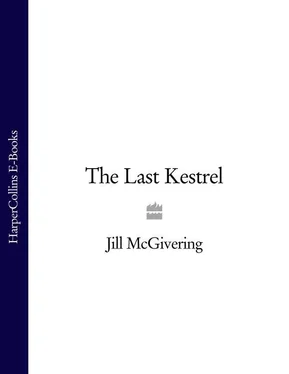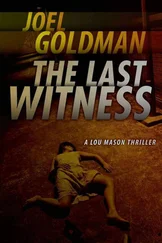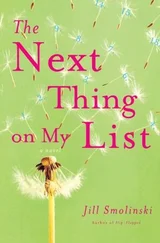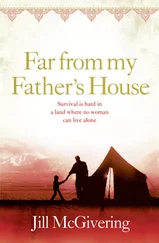Jalil’s mother lifted her fleshless hands and ran them through the boy’s hair and along the contours of his face, as if she were a blind woman, learning him. He wriggled, sighed, scratched himself around the ribs, then settled against her again and submitted to the hands without protest.
‘It was Najib who told us.’ The corners of the daughter’s mouth were tight with tension. All this was just a week old and they were still in shock.
The daughter leaned forward automatically to press on Ellen the dish of meat and rice. Ellen forced herself to take a little more. The lamb split easily into pieces on her plate, releasing aromatic steam. It was good meat. They must have paid a lot of afghanis for it. Without Jalil, money would be tight. She was very conscious that she was the only one eating. The family sat round her, dull-eyed, and watched. This evening, she knew, they would pick at her leftovers.
The daughter was educated. Some course in management or teaching–Ellen couldn’t recall what exactly. Her neat gold earrings, her shoulder-length bob and the tailoring of her Afghan kameez gave her a hint of Western stylishness.
‘What will you do now?’
The daughter shrugged. ‘Find work.’ Her tone was lifeless.
‘I could ask around,’ Ellen said. ‘The aid agencies might need someone. Or the embassies.’
The daughter kept her eyes on the plastic cloth between them. It was dotted now with stray grains of rice and wet circles of water and Coke where glasses had stood.
Jalil should be here. Their visits to this small family room, with its bare walls and peeling white plaster, had become a ritual whenever she’d worked with him. He’d always invited her home for a special evening meal, planned for the end of her stay once their work was done, and hosted by his mother. It was an honour to be welcomed into an Afghan home. His family had been proud that Jalil had an important English friend who paid him well in dollars.
Without him, the air in the room was stale. She had done the right thing in making the effort to come, dashing from the chaos of Kabul Airport to these hushed rooms, but their grief was drowning her. She tore off a final piece of bread, ran it round the congealing sauce on her plate. Another few minutes and she’d have to head back to the airport to report for the military flight south to Helmand Province.
The daughter had lifted her eyes to the television and was staring at it sightlessly. The sound was muted but the images flickered on, splashing colour and light into the room. From the heavy dresser, Jalil’s face stared out. It was a black and white photograph that Ellen had never seen before, framed in black. A spray of plastic flowers sat in a small glass vase beside it. It was an old-fashioned studio portrait that looked several years out of date. Jalil was wearing a pale kameez with a stiff collar. His hair, usually so unruly, was combed severely to one side, glossy and fixed in place, perhaps with gel. His expression, straight into the camera, was serious and subdued. She bet he hated that picture. It wasn’t at all how she wanted to remember him.
When she looked away, she saw him as he used to be, sitting opposite her, stooped over his food, his long legs crossed, his back pressed against a cushion and the wall, his hair flopping forward over his forehead. His mother, shyly triumphant, would have fussed over their meal, pressing too much rich food on them both. She and her daughter would have cooked all day in readiness. His little brother, adoring, would be horsing around, overexcited. Climbing on him until he was pushed aside and told to behave. She looked over at the boy now. He had Jalil’s delicate features, the same long black eyelashes and large eyes that would break hearts. Now, though, they were red-rimmed and anxious as he pressed his cheek against his mother’s side for comfort, like a much younger child.
She turned to the daughter. ‘On the phone,’ she said in a low voice, ‘you said something. About the way he died.’
The daughter tutted under her breath, gave her mother a quick glance, then lowered her eyes to her lap. Her fingers plucked again at the hem of her headscarf.
Ellen persisted. ‘What did you mean? What makes you think you weren’t told the truth?’
‘They said he was killed by the Taliban when they were out on patrol. An ambush. That’s what they said.’
The daughter unfolded her legs and brought herself to her feet, crossed to the dresser and opened a drawer. It was crammed with yellowing papers. She picked out an envelope near the top, withdrew a single sheet of thin paper and spread it out on the floor between them, smoothing it with her fingertips. The writing was neat, covered in the ink squiggles of Pashto.
‘From him?’
Across the room, her mother had lifted her head to watch. Ellen felt the weight of the silence, of the room’s holding its breath.
‘This is the last letter we received from him,’ the daughter said. She traced the writing gently with her finger. ‘He says he is leaving Helmand, leaving the job with the military. We should expect him home.’ She paused, blinked, continued. ‘But he sounds upset. “Things are not as I thought,” he says. “Not at all.” He writes to Mama not to worry. He’ll find work in Kabul.’ She glanced up at Ellen. ‘He means some work for foreign journalists, like he did with you. Translating.’ She paused. ‘He liked to work with you. Always when you came here. He looked forward to it.’
Ellen nodded, holding her gaze. ‘I did too.’
The daughter sighed, turned back to the letter. ‘“Don’t be angry. I cannot stay here any longer. It is not honourable.” This is what he says.’ She looked up again and Ellen saw her hesitate before she decided to speak. ‘I think he sounds afraid.’
Ellen let her eyes fall to her own hands, limp in her lap. She forced herself to face this new thought of Jalil’s fear. It sat heavy in her gut. Was it fear for his life that had made him decide to leave? A wave of nausea took her. She clenched her hands into fists, resisting it, and saw her knuckles whiten. It is not honourable for me to stay, he’d written. Honour. A cornerstone for him, she knew that.
It’s my fault, she thought. His death. I could have stopped it. She closed her eyes, screening it all out, digging her nails into her palms. Her breaths were coming in short bursts in the quietness and she tried consciously to slow and lengthen them. The family mustn’t see her distress.
A splutter of static and microphone squeal broke into the room from outside as the dusk call to prayer began. It filled the silence, shimmering in through the open windows and across the room, a young male voice of sad sweetness. Ellen sat, rigid, feeling the blessing of prayer wash over them, low and melodious in its devotion. She concentrated on breathing. The room was soft with memories.
The first time she worked with Jalil, they’d embarked on an intense ten-day road trip, interviewing dozens of Afghans about the forthcoming elections. What did they expect from their politicians? Who did they support? They’d asked shopkeepers, housewives, farmers and traders, piecing together material for a four-page spread on the general mood and how Afghans saw their future.
She’d been given Jalil’s number over lunch in Islamabad. A friend on The New York Times had just come out of Afghanistan. With so many journalists swarming through Kabul, decent translators were thin on the ground.
‘Kinda young,’ he’d said, scribbling down the mobile phone number on a paper napkin. ‘But good. Smart as a whip.’
For the first three days of the trip, she’d wondered. Jalil had been nervous, stumbling over his English. He seemed shy. He was little more than twenty and she was used to working with older men, canny operators who were usually ex-journalists themselves. They could be cocky and not always trustworthy but they brimmed with confidence and they knew a story when they saw one. By comparison, Jalil seemed naive.
Читать дальше












